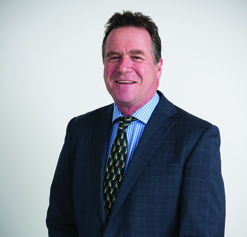Telling it straight – Nick Torlot
NewsPosted by: Dental Design 31st August 2018

THE Advertising Standards Authority (ASA) has just upheld a complaint1 against a manufacturer of orthodontic appliances for making misleading claims about one of its products. Ruling that the advert must not appear again in its current form, the ASA ordered the company not to make claims that its device could move teeth faster and reduce pain for brace wearers unless they held adequate evidence.
The British Orthodontic Society has pointed out that this is the third time in the last few years that the ASA has upheld a claim of misleading advertising in relation to an orthodontic product. This is not altogether surprising given the fierce competition for patients in a growing market.
However, the lessons from these rulings go beyond orthodontics. Everyone in the dental sector should be concerned about misleading advertising claims, given the risk to patients and the potential damage to public trust. Failure to adhere to regulatory and ethical standards can also have dento-legal repercussions for dental professionals.
Both the ASA and the GDC may take action in response to inaccurate or misleading claims and the ASA can refer offenders to the Office of Fair Trading. In addition, an adverse finding by the ASA could easily lead to a GDC investigation if it raises questions about a registrant’s professionalism.
The good news is that there is plenty of guidance and support available to help dental professionals avoid the pitfalls. Only recently, the Committee on Advertising Practice (CAP) which produces the CAP advertising code (administered by the ASA) published ‘dental ads wisdom’2, while the GDC’s guidance on advertising can be found on its website3. And of course, dental professionals can get specific advice from their dental defence organisation if they are unsure.
I also recommend that dental practices regularly review their advertising and promotional material to ensure it meets current standards. Based on the common errors seen by the DDU’s advisers, practices should be on the alert for the following:
• Superlatives – The GDC generally disapproves of ‘grandiose’ statements to describe the services offered such as ‘the best’. More generally, steer clear of making any claim which might raise unrealistic expectations, such as ‘perfect smile’ or ‘pain-free’, particularly with aesthetic treatments.
• Specialist titles – Dentists shouldn’t use the words ‘specialist’, ‘specialises’ or ‘specialising’ when referring to themselves or their practice unless they, and all other dentists in the practice, are on a GDC specialist list, and then only in relation to the particular specialist list(s) upon which their name(s) are entered.
• Identifiable patient images – Patients must give their informed consent before identifiable information can be used in advertising material, such as testimonials or photos. Consider whether it is necessary for the patient to be identifiable, even with consent, and the patient should be able to withdraw their permission at any time.
• Promotional offers – The GDC permits dental professionals to offer practice promotions, but you must ensure the conditions are clear, not potentially misleading, and any offer made is honoured in full.
• Fees – Many complaints about dental charges stem from a breakdown in communication. Be clear about whether treatments are available on the NHS and provide details of payment arrangements, such as whether patients are expected to pay for their treatment in advance or on completion. If you stop providing NHS treatment, ensure all NHS branding is removed from your website and promotional material immediately. n








